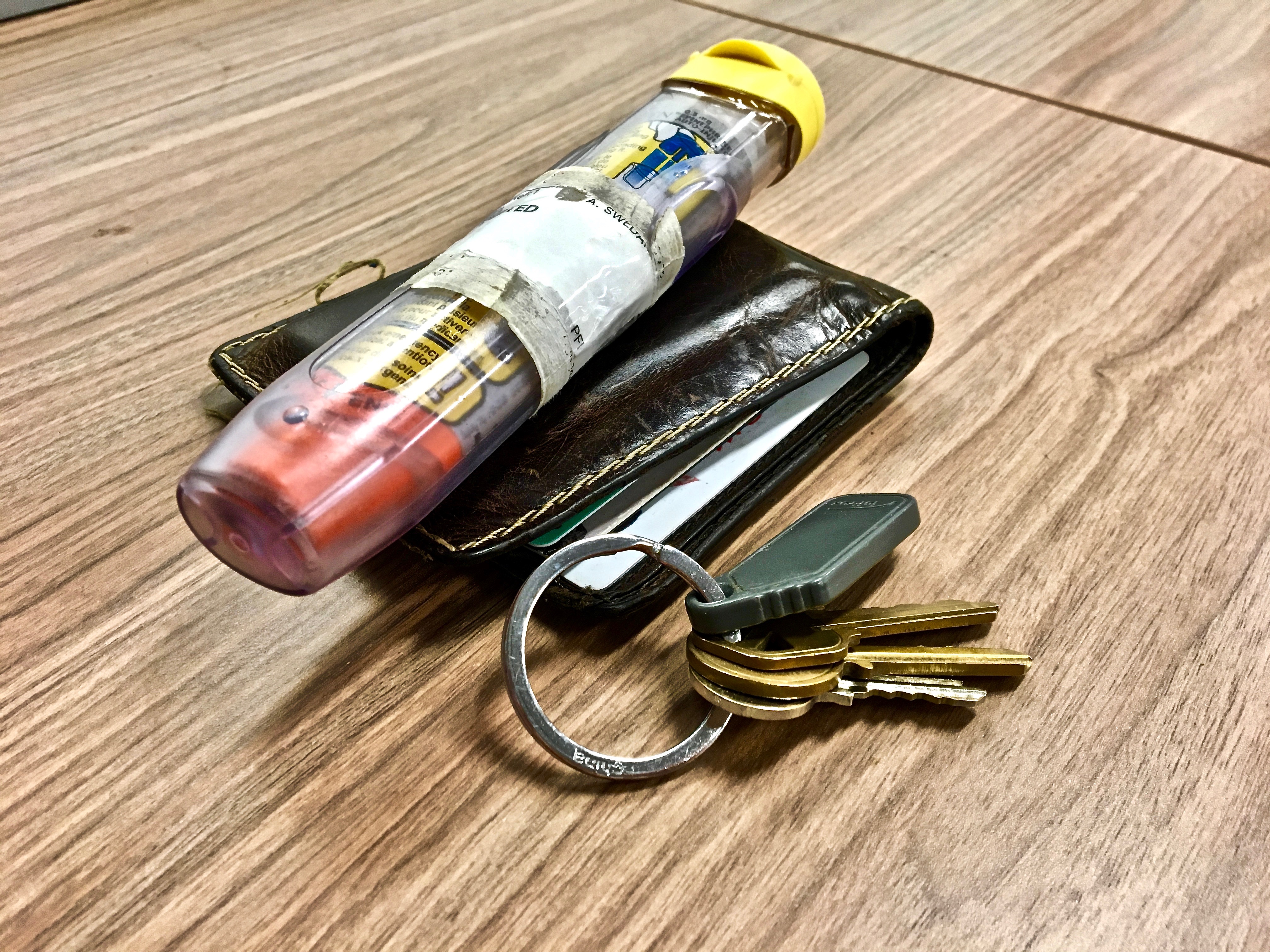
In relation to my peanut and tree nut allergy
I am a 27-year-old adult with life threatening allergies and I carry my epinephrine auto-injector everywhere I go. When I’m out with friends or family at restaurants it is very important that I communicate the severity of my allergies to servers and to the chef(s) or management. It is more and more common that restaurants and pubs ask about food allergies before patrons need to mention them, which is accommodating and proactive. Still, it is vital to impress upon the wait staff the severity of the allergies, so the chef can comment on whether or not various meals or parts of the kitchen are allergen friendly. As well, it is not only when I am out on the town when I find the need to mention the seriousness of my allergies; it can also be when I am at a friend’s house for dinner, or even at my own house with my family.
It was not easy learning how to broach the subject of my allergies. I recall visiting a friend who had put out a vegetable platter to which I had to politely refuse. She asked why, and I explained my allergy. Following up, she asked what happens when I eat raw fruits and vegetables, to which I said “I die”. The whole room fell silent, and I realized that everyone either thought I was being over dramatic or that my allergy was so severe that I couldn’t even be in the same area code as an allergen. I then explained that my body may go into what is called “anaphylactic shock”, and helped them understand the severity of my allergy better. This was when I learned that there is a fine line between over-dramatizing allergies and downplaying them. At a restaurant or a friend’s house it is important not to scare people with the thought of a life-threatening allergy, but it could even be less effective to undercut their severity.
I have learned that there are two or three phrases, which I commonly use now, that portray the quality of my allergies without creating a panicked environment: “life-threatening”, “anaphylactic”, and “serious” allergies.
Surprisingly, another method that has worked effectively to communicate the danger of my allergies is simply having my auto-injector visible on the table. It is nearly a habit of mine that when I sit down at a desk or at a restaurant table, I empty my pockets of my wallet, cell phone, keys, and auto-injector. I do this for comfort and to avoid losing one of these valuable items in the crack of a seat or onto the floor. One time at a restaurant a server noticed this ritual, and immediately asked me what I was allergic to. They seemed concerned to obtain accurate information too. This method worked unusually well, but personally I don’t like being the centre of attention, so I have stopped doing this as often.
In relation to my other allergies
I have found different experiences with my common allergies compared to my uncommon allergies. I have a severe form of what’s called “Oral Allergy Syndrome”, where my body confuses fruits and vegetables with tree pollen. Many people have an allergy to one or two fruits or vegetables and when they eat these, they experience a mild throat irritation or scratching. I have a severe form of oral allergy syndrome and when my mouth and throat are exposed to any raw fruit and any raw vegetables, there is profound swelling which can lead to airway compromise. Peanut, tree nut, gluten, and milk allergies are fairly well publicized in the media, and I find restaurants usually understand that these are serious. Raw fruits and vegetables on the other hand are less commonly life-threatening allergies, so it always comes as a surprise to my server. I usually avoid fruit and vegetables in a restaurant because servers invariably mention, “How cooked do they have to be.” Since this is so often subjectively interpreted, I don’t risk it. It is not always known whether or not they understand the severity of these more uncommon allergies. I’m sure this is not limited to my allergies, but other adults with other less common allergies as well. It is important to approach these allergens as you would any common allergens when communicating them to others and understand that there may be some surprise and discussion about these allergens.
Overall, a useful method to ensure the severity of an allergen is communicated effectively, I remember to use a calm demeanor, language such as “serious” or “life-threatening”, and avoid dramatizing or underplaying an allergy.
– Fraser K.
Tags: Anxiety, communication, Fraser K, New Food Allergy